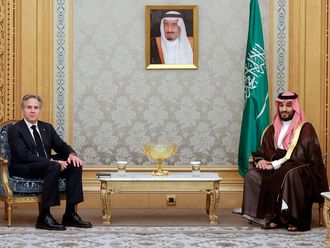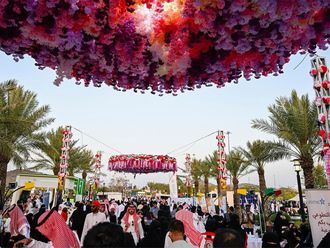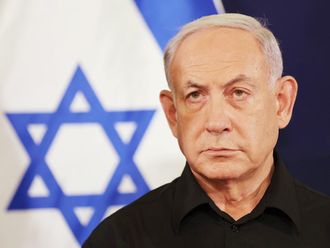Manama: Iran must take the first steps to dispel the fear that Gulf states have over its nuclear programme, Saudi Prince Turki Al Faisal Bin Saud, Chairman of the King Faisal Centre for Research and Islamic Studies said at the Manama Dialogue during a debate organised by Al Arabiya TV, discussing Yemen security.
While the debate Friday night was aimed at discussing security problems in Yemen arising from the growing presence of Al Qaida, Iran seemed to steal the limelight.
Yemeni Foreign Minister Dr. Abu Bakr Al Qirbi, Bahraini FM Shaikh Khaled Bin Ahmad Bin Mohammad Al Khalifa, Saudi Prince Turki Al Faisal and British Defence Secretary Dr. Liam Fox shared the panel.
The stability of Yemen and Iraq were cited as important issues for Gulf states to resolve in the short term, but Shaikh Khaled said Iran will remain a long term issue.
“We must deal with problems from Iran as they arise,” he said. From the British side, Defence Secretary Fox said that the strategic, economic and geopolitical importance of the Gulf, made Gulf security an international concern.
“It is not in our interest or the interest of the region to have massive domination by a single country. Equilibrium in the Middle East is in the interest of the international community,” he added.
It is worth mentioning that during the 1980’s the US position to support Iraq against Iran during the Iran-Iraq war, was part of a strategic foreign policy called Dual Containment which made sure no single entity whether it be Iran or Iraq emerge as a superpower in the region.
Today, Iran sees itself in an increasingly influential position following the ousting of Iraqi leader Saddam Hussain and the collapse of the Baathist regime, after US troops invaded Iraq in 2003.
Western governments and many Arab countries have been openly critical of Iranian “interference” in the region, citing their support for groups like Hezbollah in Lebanon, Hamas in Palestine and Shiite groups in Gulf states.
Later in the evening, US Secretary of State Hillary Clinton gave a special address speaking directly to Iran while Iranian Foreign Minister Manouchehr Mottaki was sitting a few feet away from her in the audience. On Monday, the P5 +1 countries will meet in Geneva to have direct talks with Iran over its nuclear programme.
“We hope to see constructive engagement in regard to your nuclear programme,” Clinton said to Motakki. “You have a right to a peaceful nuclear programme, but it comes with responsibility to address international concerns. Unfortunately the latest IAEA report indicates that you are choosing the path of isolation. We hope on Monday you will be able to restore our confidence,” Clinton added. After the address, Clinton was seen cozying up to Turkish Foreign Minister Ahmet Devutoglu while exiting the gathering.
Other dignitaries in attending the event included King Abdullah of Jordan and UAE Foreign Minister Shaikh Abdullah Bin Zayed Al Nahyan.












